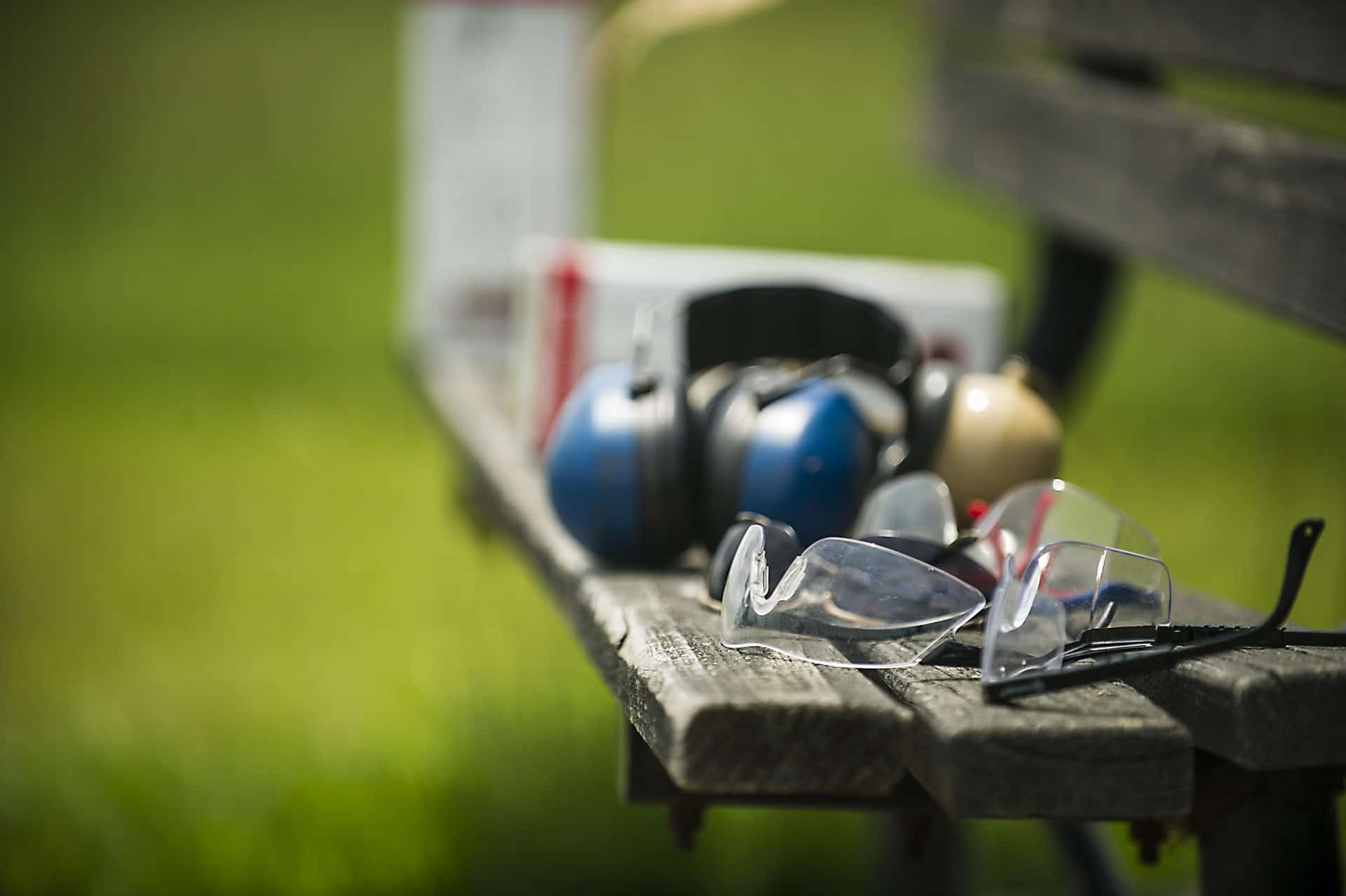What level of protection do I need?
As much as you can get. To be blunt. Part of Firearms Safety is also wearing appropriate PPE1 when required.
By law
The Health and Safety in Employment Regulations 1995 requires that no employee is exposed to noise above the
following levels:
- LAeq8h of 85dB(A); and
- LPeak of 140dB
LAeq8h85dB(A) means the level of daily noise exposure normalised to the average eight-hour working day. Noise level exposure must not exceed the A-weighted sound energy of 85 decibels over an eight-hour period.
A-weighted sound energy measurements ensure that the testing equipment reflects how humans hear noise.
LPeak140dB is the highest frequency unweighted (pure sound) peak sound pressure level. Any noise, even if it is for a short time, must not exceed 140dB because this can cause instantaneous hearing damage.
Now, we are technically not ’employees’ when shooting2 – but it’s an interesting thing to note – that we could never be exposed to the noise levels at work, that some shooters voluntarily expose themselves to during recreation.

But how loud is a firearm?
Obviously, this depends a lot on the particular firearm – a suppressed 7mm08 is very different to a braked .50 cal.
Heres the important bit – regardless – exposure to noise greater than 140 dB can permanently damage hearing. Almost all firearms create noise that is over the 140-dB level. A small .22-caliber rifle can produce noise around 140 dB, while big-bore rifles and pistols can produce sound over 160 dB.
Firing guns in a place where sounds can reverberate, or bounce off walls and other structures (i.e a range), can make noises louder and increase the risk of hearing loss. Also, muzzle brakes or other modifications can make the firearm louder.
If you are assessing noise levels, remember that the decibel scale is logarithmic, which means every increase of 3 dB doubles the sound level, and at that level it will take only half as long to damage your hearing.
People who do not wear hearing protection while shooting can suffer a severe hearing loss with as little as one shot if the conditions are right.
A list of firearm volume levels
With a few highlights –
| Firearm | dB SPLpk |
|---|---|
| Colt AR-15 – 5.56 X 45mm (.223) | 158.9 |
| Ruger 10/22 | 143.4 |
| Glock 17 9mm | 163 |
| Remington 870 12 Gauge | 159.7 |
| Winchester Model 70 7mm Mag | 166.5 |
So. Loud. Understanding that guns are loud – how do I now protect my hearing?
Earplugs, earmuffs
Earplugs, earmuffs, hearing protection all work in a similar manner – they cover (or fill) the ear canals and reduce the amount of sound that can enter the ear, protecting the fragile bones and structures within.
However, there is a wide, wide range of hearing protection out there – much of which isn’t actually suitable for shooting.
So – how do we tell if what we have is enough? Simple. Check its rating.
All hearing protection in NZ should come with a rating marked on it. Not saying it all does, but it should.
The problem is, even the highest rated protection, likely still isn’t enough.
How does the rating system work?
| Noise Level | Class | SLC80 dB Reduction Range |
|---|---|---|
| Less than 90 decibels | 1 | 10 – 13 |
| 90 to less than 95 dB | 2 | 14 – 17 |
| 95 to less than 100 dB | 3 | 18 – 21 |
| 100 to less than 105 dB | 4 | 22 – 25 |
| 105 to less than 110 dB | 5 | 26+ |
Here is the rub. Not even a Class Five (the highest level of hearing protection) really brings the noise levels down to what would be considered ‘safe’ levels – and – the other issue is, a lot of the exposure levels are based around exposure over time, not the peak impulse that we experience with a gunshot.
In short. Nothing under class five is really worth considering – and even then, you might want to double plug.
How about combining earplugs and earmuffs?
Sound is a little tricky. So is attenuation. You don’t get to just add the reduction of both the muffs and the plugs if wearing both.
However, as a general rule, earplugs will add another 3-5 db reduction to the muffs ratings.
I personally have both.
But, what about hunting? Or. Is a suppressor enough?
Its only one shot though!
No. Wrong wrong wrong – the damage is permanent. And cumulative. Even though that ringing goes away – you still have damaged your hearing at some level. So that ‘occasional’ shot you take a couple of times a year hunting – really is doing you damage in the long term. Stop kidding yourself!



